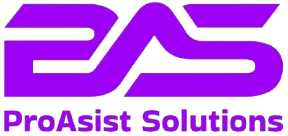Decoding the Front-End: Your Guide to Cracking Front-End Developer Roles in India
The front-end is the face of the web, the user’s first impression, and the key to a seamless online experience. In India’s rapidly expanding tech landscape, front-end developers are in high demand. But securing that coveted role requires more than just knowing HTML, CSS, and JavaScript. This blog will equip you with the strategies and insights to ace your front-end developer interviews across India.
Understanding the Front-End Landscape in India
Front-end interviews in India often emphasize a strong foundation in core web technologies, problem-solving skills, and the ability to adapt to evolving frameworks and tools. Expect questions that assess your understanding of:
HTML, CSS, and JavaScript Fundamentals: A deep understanding of these core technologies is essential. Expect questions on semantic HTML, CSS layouts, responsive design, DOM manipulation, and JavaScript fundamentals.
Modern JavaScript Frameworks and Libraries: Proficiency in popular frameworks like React, Angular, or Vue.js is often required. Understanding their core concepts, component lifecycle, state management, and routing is crucial.
CSS Preprocessors and Methodologies: Familiarity with CSS preprocessors like Sass or Less and methodologies like BEM or CSS Modules is highly valued.
Responsive Design and Cross-Browser Compatibility: Understanding how to build websites that adapt to different screen sizes and work across various browsers is crucial.
Front-End Performance Optimization: Knowledge of techniques for improving website performance, such as code splitting, lazy loading, and image optimization, is essential.
Version Control (Git): Proficiency in Git for code management and collaboration is a must.
Testing and Debugging: Understanding of front-end testing frameworks (e.g., Jest, Mocha, Cypress) and debugging tools is important.
Accessibility (A11y): Knowledge of accessibility guidelines and best practices is increasingly important.
Web Performance (Lighthouse): Awareness of how to use tools like lighthouse to improve web performance is beneficial.
Strategies to Conquer Your Front-End Developer Interviews
Cracking these interviews requires a strategic blend of technical mastery, problem-solving skills, and effective communication. Here’s your roadmap:
- Master the Fundamentals:
HTML, CSS, and JavaScript: Go beyond basic syntax. Deep dive into semantic HTML, CSS layout techniques (Flexbox, Grid), and advanced JavaScript concepts (closures, promises, async/await).
Understand the DOM: Develop a strong understanding of the Document Object Model (DOM) and how JavaScript interacts with it.
Practice Responsive Design: Build websites that adapt to different screen sizes and devices. Understand media queries and responsive layout techniques.
- Embrace Modern Frameworks and Libraries:
Choose a Framework and Master It: Select a popular framework (React, Angular, or Vue.js) and become proficient in its core concepts. Understand its component lifecycle, state management, and routing.
Learn State Management: Understand different state management approaches (e.g., Redux, Context API, Vuex) and when to use them.
Explore Component Libraries: Familiarize yourself with popular component libraries (e.g., Material UI, Ant Design, Chakra UI) and understand how to use them effectively.
- Optimize for Performance and Accessibility:
Learn Performance Optimization Techniques: Understand how to improve website performance, such as code splitting, lazy loading, and image optimization.
Prioritize Accessibility: Learn about accessibility guidelines (WCAG) and how to build websites that are accessible to users with disabilities.
Use Web Performance Tools: Become familiar with tools like Lighthouse and PageSpeed Insights to analyze and improve website performance.
- Build a Strong Portfolio:
Create Personal Projects: Build a portfolio of projects that showcase your skills and experience.
Contribute to Open Source: Contributing to open-source front-end projects is a great way to learn from experienced developers and showcase your abilities.
Deploy Your Projects: Deploy your projects to platforms like GitHub Pages or Netlify to make them accessible online.
- Ace the Interview Rounds:
Coding Rounds: Be prepared to write clean, efficient, and well-documented code. Explain your thought process and the time/space complexity of your solution.
Technical Discussions: Be ready to discuss your past projects in detail, explaining the architecture, technologies used, challenges faced, and your contributions. Be honest about your strengths and weaknesses.
Live Coding Challenges: Be prepared for live coding challenges that require you to solve front-end problems in real-time.
Behavioral Interviews: Prepare using the STAR method to showcase your problem-solving skills, teamwork abilities, communication skills, and how you handle challenging situations.
- Tailor Your Approach:
Research the Company and Role: Understand the company’s domain, tech stack, and the specific requirements of the front-end developer role you’re applying for. Tailor your preparation to align with their needs.
Highlight Relevant Experience: Emphasize projects and experiences that directly relate to the technologies and challenges mentioned in the job description.
- Communicate Effectively:
Think Out Loud: During coding and design rounds, verbalize your thought process. Explain your reasoning and the decisions you’re making.
Ask Clarifying Questions: If you’re unsure about a requirement or a question, don’t hesitate to ask for clarification. This shows engagement and a desire to understand the problem fully.
Be Concise and Clear: Articulate your technical concepts and solutions in a clear and concise manner.
Final Thoughts
Cracking front-end developer roles in India requires a combination of strong technical skills, a problem-solving mindset, and the ability to communicate effectively. By focusing on the fundamentals, embracing relevant technologies, practicing diligently, and tailoring your approach, you can significantly increase your chances of landing your dream front-end development job. Stay curious, keep learning, and good luck on your interview journey!
![Untitled design (1)[1]](https://proasistsolutions.com/wp-content/uploads/2021/04/Untitled-design-11-e1744036396309.png)



